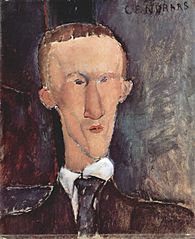#26 2015-08-24 02:27:52
- 4F Hepcat
- THE Cat

- Posts: 14333
Re: Black Gypsies
Funnily enough, by the time I turned 18, my hair had become all wiry, fuzzy and frizzy with long drawn out widow peaks. Rather than anything genetic, I put this down to washing my hair twice a day and using Brylcream wet-gel incessently from 1985-88.
Vibe-Rations in Spectra-Sonic-Sound
#28 2015-09-29 02:08:58
- Bop
- Member

- Posts: 7661
Re: Black Gypsies
Have a read of this Jeff..
http://www.irishtimes.com/news/science/is-distinctive-dna-marker-proof-of-ancient-genocide-1.1426197
#29 2015-09-29 06:01:10
- Jeff Reed
- Member

- From: Brooklyn, New York
- Posts: 991
Re: Black Gypsies
Yes, that just shows how wild such a theory as "out of Iberia" is. Genocides did not happen in the ancient world. Not least because technology, transport, and political sophistication could not support population kill offs except on a very local scale.
Plus, the article is 2 years old. That's old in this field.
Also, so what if Iberia and Ireland are R1b? It's clearly the dominant haplogroup in western Europe no matter where you step. But Iberia and Ireland are obviously dominated by different subclades. DF27 is not unknown in the British Isles, but it is far rarer than L21. How could this be if there was a mass genocide and replacement of the population? Wouldn't the Iberians and Irish show the same subclades in roughly the same proportions?
The Bell Beaker culture possibly originated in Iberia. It's as good a guess as any other. The culture spread widely and quickly. This does not mean, and DNA evidence does not indicate, that it was spread by mass migrations of peoples.
The best theory on the spread of R-M269 in western Europe is that the core area before divergence was around northern France. There it is observed are a high proportion of people who are R-P312/S116, which is upstream from the L21 subclade and the DF27 subclade. As populations moved out of this area they settled in more remote areas where mutations like L21 and DF27 appeared and rapidly expanded.
The article reports on an exciting theory. It's a wild story. I can surmise the paper chose this theory not for its soundness or plausibility.
The public likes stories about genocides and wild, exotic lineages. The truth is probably much simpler and less exciting. Most of us branch off of a group of people from central Europe. Germans and Celts both come from this line. After many migrations of smaller groups mutations appeared in local populations. There is much to be filled in, but much at least has already been debunked---like the direct African origin.
